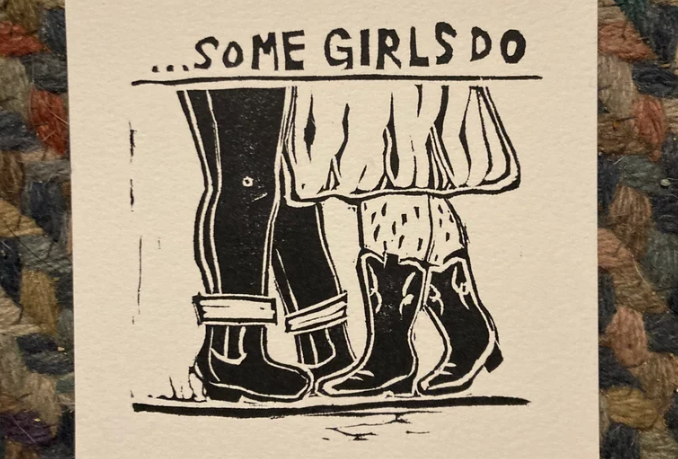The word ‘femme’ is typically used to describe someone in the lesbian community whose appearance and mannerisms are seen as traditionally feminine – whatever that means.
In contrast, the term ‘butch’ is often adopted by lesbians who present themselves in a traditionally masculine way, perhaps in their physical appearance or by adopting a specifically anti-‘male-gaze’ approach to life.
Since I came out as part of the LGBTQ+ community, the term ‘femme’ has been one that has fit me perfectly. It’s a comfortable label, and it helps me to define my dynamic in terms of relationships with other women.
It definitely has its perks, including extra security and the fact that it is not immediately recognisable that I’m queer, which is perfect for travel or when I’m meeting people for the first time. Even media representation favours femme lesbians. It is far more common to see a traditionally feminine woman come out as gay on a popular television series than it is to see other types of lesbian characters.

However, the level of sexualisation and objectification faced by femme women is undeniable. When I reject a man’s advances and have been pushed for an explanation, they are both thrilled and fascinated when I inform them that I like women, or that I’m in a relationship with one.
Unfortunately, this doesn’t come from a place of support or an enthusiasm to learn about the community’s history or culture. To them, this is an open invitation for questions such as “Who’s the man in the relationship?”. The idea that a woman can be sexually attracted to other women plays directly into a fantasy that many straight men share.
These questions only become more inappropriate when they learn that I, a traditionally feminine-presenting queer woman, much prefer a masculine woman over a fellow femme. I am queried persistently on why I don’t just settle for a man, considering that I like masculine women. The people initiating these kinds of conversations are purposefully missing the point.

One thing I have noticed, especially since working in a male-dominated area, is the stark difference in reaction when I inform someone I have a girlfriend, in contrast to when I’ve turned someone down in the past due to having a boyfriend. The former is a challenge, and the latter is faced with acceptance. I believe that this boils down to a greater amount of respect for another man’s relationship and a total disregard for the seriousness of an LGBTQ+ one.
In addition to the behaviour of straight men, individuals who consider themselves ‘femme’ also face invisibility inside the gay community. Being told that you “don’t seem gay” is not the compliment many think it is, considering the personal issues nearly every LGBTQ+ individual battles with when coming to terms with their identity. It is also far more difficult for femme lesbians to initiate relationships with other women, due to the underlying belief that someone who is feminine presenting must be straight.
My main advice to women who feel as though their sexuality isn’t taken seriously because of how they present is to stand firm in your identity. Of course, safety is a factor that must be taken into consideration but, if you are able, it’s important to put your foot down and remain confident in what you tell others, no matter how hard they try to convince you otherwise. Femme lesbian women are more than a fantasy or something that needs to be changed and certainly not ‘turned’.
We are dealing with the massive task of proving that our femininity does not exist to cater to men, and instead is a reflection of who we are as people, no matter our sexuality.
Image Credit: Tabooless.net








